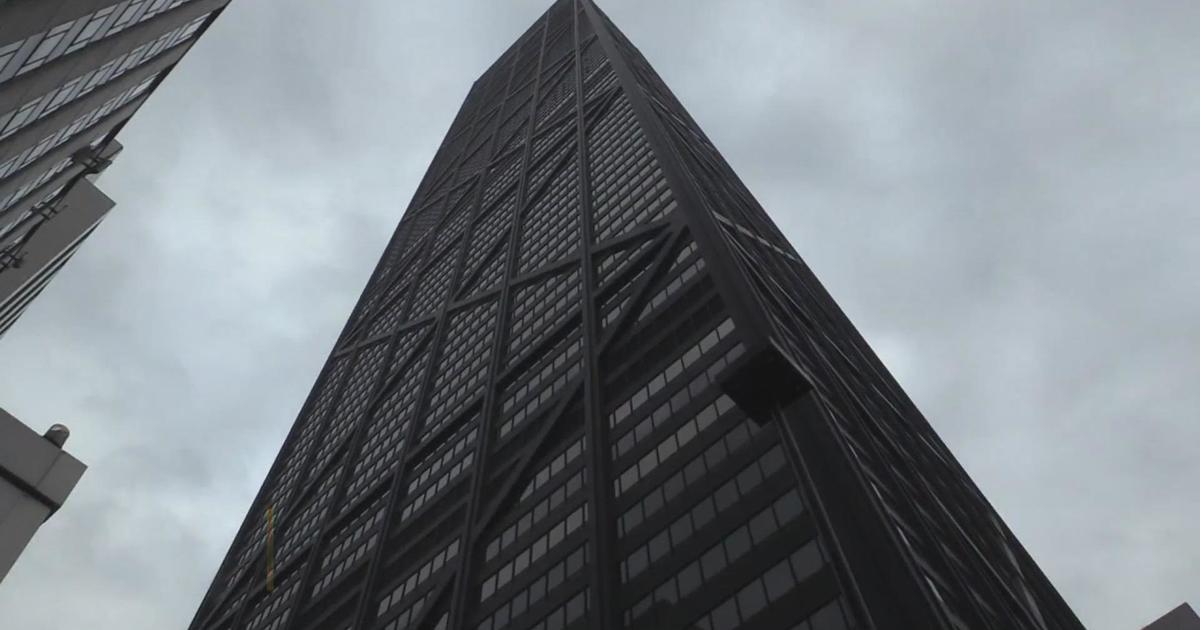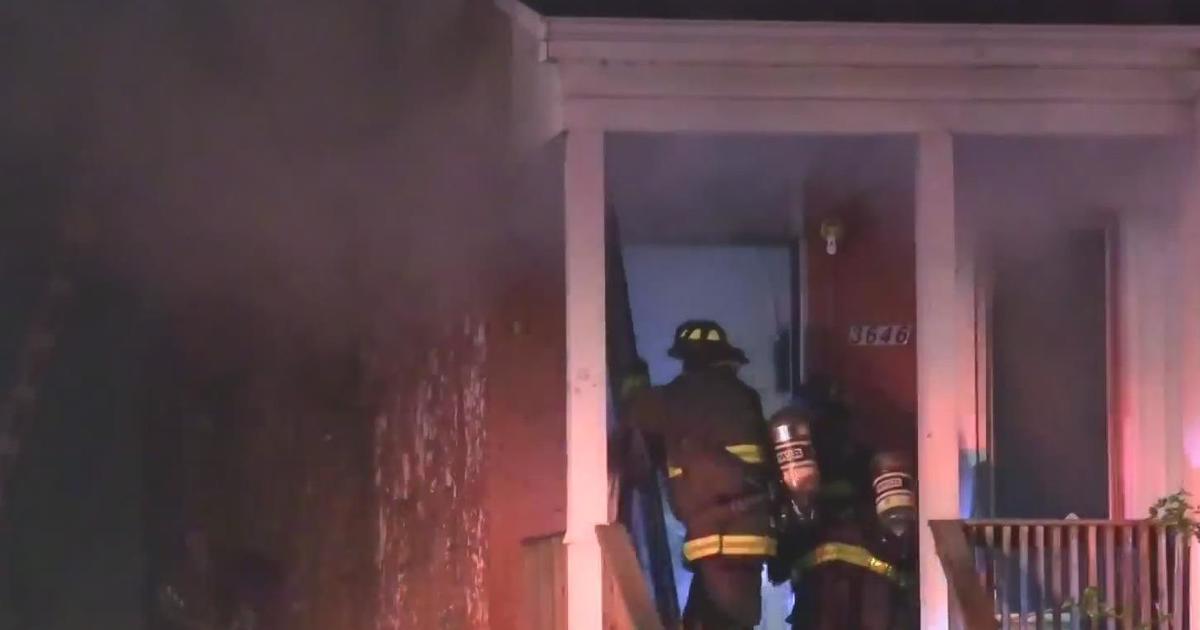Feds Set Ground Rules For Illinois House Panel Investigating Speaker Madigan's Ties To ComEd Bribery Case
CHICAGO (CBS) -- U.S. Attorney John Lausch has given the go-ahead for the Illinois House committee investigating Speaker Michael Madigan to call witnesses and seek documents related to the ComEd bribery case, so long as lawmakers steer clear of questions about grand jury testimony, or witnesses' communications with prosecutors and federal agents, amid an ongoing criminal investigation.
In a letter to the top Democrat and Republican members on the Special Investigating Committee (SIC), Lausch said federal prosecutors have no objections at this time to the panel calling witnesses or seeking documents related to the deferred prosecution agreement with ComEd.
However, Lausch's letter said the feds "might raise objections to particular testimony or document requests as the SIC's and our investigations proceed, including objections to testimony and to the production of documents from parties the SIC has already named."
While federal prosecutors are not objecting in general to the committee calling witnesses or seeking documents in the ComEd case, Lausch did set some limits for the panel:
- They should not ask any witnesses about grand jury proceedings, or to produce documents that disclose grand jury activities.
- They should not question witnesses about their communications with prosecutors or federal agents related to the criminal probe, or ask them to produce materials about such communications.
- They should not request documents, information, or testimony from the U.S. Attorney's office or other federal agencies regarding the facts and circumstances underlying the deferred prosecution agreement with ComEd, including confirmation of the names of people or entities referenced in the DPA.
- They should not ask any witness to testify about or produce documents regarding any possible grant of immunity.
The letter from Lausch comes after Democrats and Republicans on the panel disagreed on how to memorialize a phone conversation they had with Lausch earlier this week regarding how to move forward with their probe of Madigan.
The two parties tried to craft a joint letter describing their understanding of the limits Lausch had set on what documents they could seek, which witnesses they could call, what kinds of questions they could ask. However, they couldn't agree on a letter to send to Lausch, so they both sent competing letters on Wednesday, prompting Lausch's response on Thursday.
Even with Lausch's letter in hand, Democrats and Republicans on the panel remain at odds.
Rep. Emanuel "Chris" Welch, a Democrat from Hillside who is chairing the Special Investigating Committee, said it's clear Republicans wanted to go beyond the limits of what was originally discussed with Lausch.
"Once again, I will not allow this committee to inappropriately interfere with the work of the U.S. attorney, and I will not allow it to be used as a stage for political theater," Welch said in a statement.
"U.S. Attorney Lausch's letter today confirms our understanding that while this committee can call individuals to voluntarily appear, they would be limited in what they can discuss. In particular, information underlying the deferred prosecution agreement beyond what is already public could be met with objection by federal investigators, and any further information collected by the federal government that informed that agreement is explicitly off limits," Welch added.
Rep. Grant Wehrli, a Republican from Naperville serving on the Special Investigating Committee, countered that Lausch's letter shows Welch was seeking to set stricter limits on testimony than Lausch agreed to.
"It is apparent that Representative Welch was incorrect in his assessment of the U.S. Attorney's Office position with regard to our ability to call and question witnesses. Rep. Welch has accused Republicans of playing politics, when all Republicans want to do is find the truth in the matter of the House Speaker's knowledge or involvement with the items disclosed in the deferred prosecution agreement between Commonwealth Edison and the U.S. Attorney's Office," Welch said in a statement. "With this clarity now provided, the Special Investigating Committee should reconvene without delay to continue our important work."
You can read the letter Welch sent to Lausch here, and the letter Republicans sent to Lausch here.
ComEd has been charged with a years-long bribery scheme that sought to influence Madigan, the nation's longest-serving House Speaker.
As part of a deferred prosecution agreement, ComEd admitted attempting to influence legislation regarding the regulatory process that determines the rates it is allowed to charge customers for electricity. ComEd acknowledged it stood to benefit by more than $150 million from that legislation.
Madigan has not been charged with a crime, but in response to the bribery case, Illinois House Minority Leader Jim Durkin (R-Western Springs) and two other Republican state lawmakers filed a petition requesting the House convene a special investigative committee to look into whether Madigan should be disciplined over his dealings with ComEd.
Durkin and the petitioners have submitted a list of potential witnesses they would like to voluntarily testify and produce documents. The list includes Madigan, former lobbyist and Madigan adviser Michael McClain, former ComEd CEO Anne Pramaggiore, former ComEd vice president Fidel Marquez, former ComEd lobbyists John Hooker and Jay Doherty, former Chicago alderman Michael Zalewski, and "any individual currently or formerly employed by Commonwealth Edison with knowledge of the matters contained in the Deferred Prosecution Agreement."
Federal agents raided Zalewski's home last year in connection with the ComEd investigation, but he has not been charged with a crime.
Marquez was charged last week with bribery and conspiracy, accused of scheming with others to corruptly solicit jobs, contracts, and payments for the benefit of Magidan and his associates in order to influence legislation that would benefit ComEd. Madigan was identified in court documents as "Public Official A." Marquez is accused of sending a payment of $37,500 to "Company 1, a substantial portion of which was intended for associates of Public Official A."
With Lausch's letter in hand, Welch said he now plans to hold the investigating committee's next hearing on Sept. 29 in Springfield. He said he will be inviting all of the witnesses on the list, and sending them a copy of Lausch's letter.
"All I wanted was written guidance from the US Attorney," he said in an email.
If a majority of the Special Investigating Committee – comprised of three Democrats and three Republicans – determines there is probable cause to file disciplinary charges against Madigan, a separate 12-member disciplinary committee would be formed to vote on each possible charge.
If the disciplinary panel approves any charges, the full House would then vote on any possible disciplinary action. A two-thirds majority vote would be required to sanction Madigan. That would mean, at any point in the process, at least some Democrats would have to support disciplinary charges against Madigan for him to be punished.



